6 Questions for Elisabeth Fußeder
An Interview
Elisabeth Fußeder has been commissioned to compose works for the Bundesjugendchor, the Bayerischer Landesjugendchor and the Mädchenkantorei at Freiburg Minster, among others. Her choral cycle waldeslust has been published by Carus-Verlag. Now she has answered our questions and talks about her first own composition, what she does besides composing and what her most emotional musical experience has to do with dreaming.
What was your first composition?
My piece “Occultus” for musical saw, two violins and cello. It was written during group lessons with my first teacher, Rodolphe Haimann the music teacher and composer from Freising. Shortly before that, I had taken a course for musical saw in Munich, and I was very taken with the instrument and the idea of writing a piece in which the musical saw is employed not just to amuse the audience, as is usually the case, but as an instrument of equal value to all others.
Which other composers inspire you?
It’s difficult to say, because it’s usually certain pieces, situations, (sound) colours or similar aspects that inspire me, rather than the artistic oeuvre of a single person. However, I find the Finnish composer Kaija Saariaho, for example, very interesting: “Everything can be found in a voice, in an extreme way. In a sense, it’s the richest form of expression because the instrument is inside a human being and there are many things that cannot be falsified when using your voice.” (Kaija Saariaho in 2014 in an interview with Clément Mao-Takacs for Music & Literatur)
Your most emotional musical experience to date?
The day I heard the third movement from Johannes Brahms’ third symphony for the first time, I had a very intense, extremely detailed and deeply emotional story dream that night. I had never dreamt so intensely and emotionally before. When I woke up, I tried to work out which experience from the previous few days could have caused this dream, but I couldn’t find anything which was likely to have inspired it. When I listened to Brahms’ 3rd movement again in the afternoon for my lessons, it was clear, as though scales were falling from my eyes, that my dream had transformed the mood of this music into a story. Even today, years later, the emotion I experienced almost brings tears to my eyes when I think back to that situation.
Where do you prefer to compose?
I like to compose somewhere quiet (e.g. my desk at home or sometimes the library), as this is the best way for me to concentrate. But I travel a lot, so I don’t really have that “one” place where I always compose.
What are you working on at the moment?
At the moment I have the wonderful commission of composing another piece for the Bundesjugendchor (German Youth Choir). I’m really delighted that I have another chance to work with this excellent choir!
When you’re not composing or making music, then…
I love meeting up with friends or fellow musicians to chat and get my mind off things. I also like to work haptically to balance out all the PC work, preferably working on fine things with my hands.
waldeslust
Cycle for mixed choir by Elisabeth Fußeder
Carus 9.273/00
The Bundesjugendchor recorded the composition on its debut CD Waldeslust (Carus 83.539).
Elisabeth Fußeder (born 2000 in Munich) has been commissioned to compose works for the via-nova-chor Munich, the Ensemble rechérche, the Bundesjugendchor, the code modern festival and the Bayerischer Landesjugendchor. She has been studying composition and aural training at the Freiburg University of Music since October 2020.

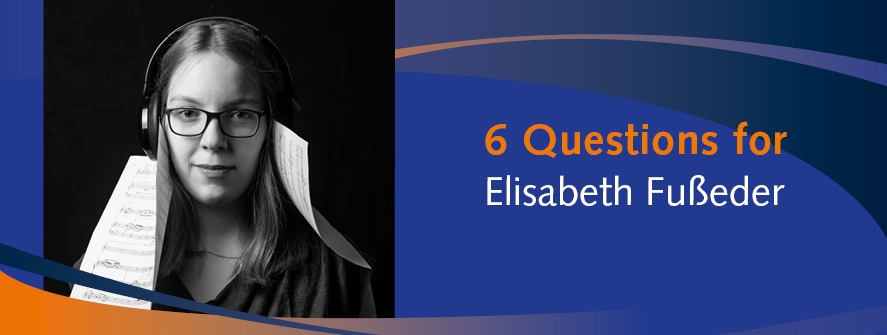
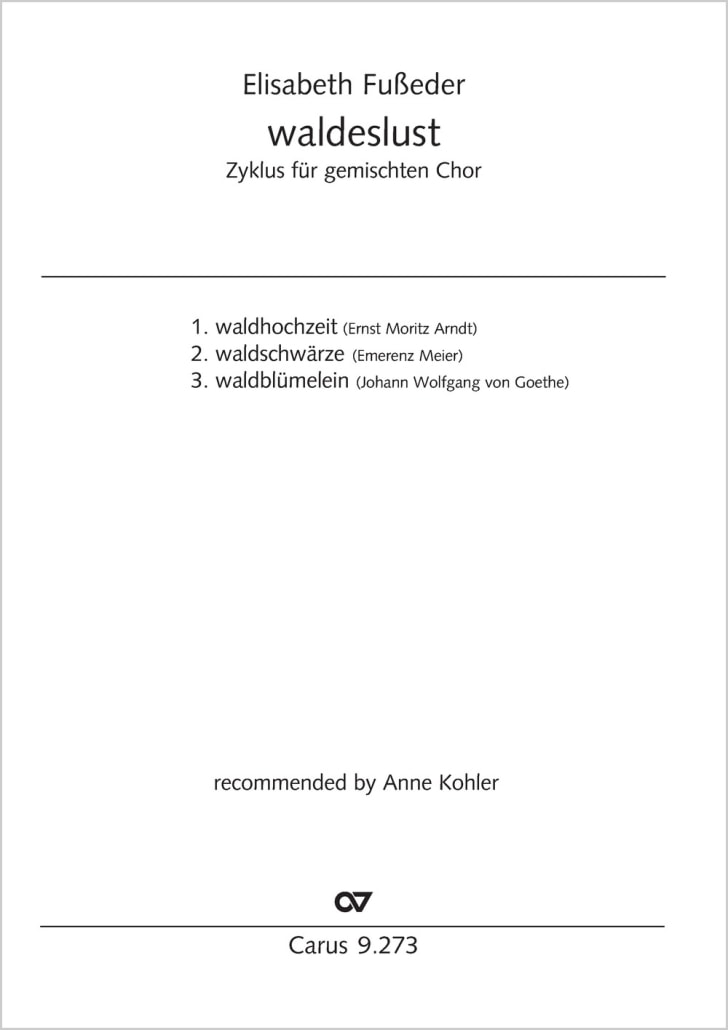
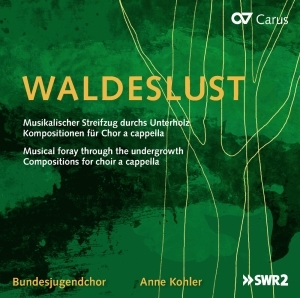
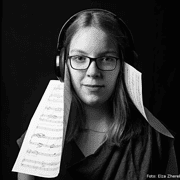
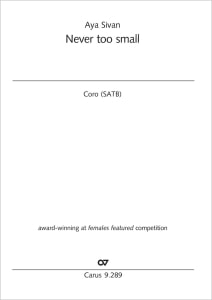
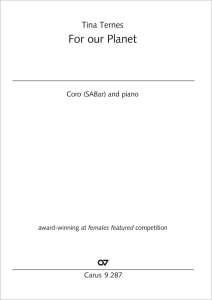
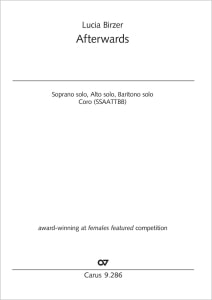


Leave a Reply
Want to join the discussion?Feel free to contribute!